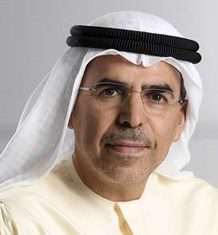Aluminium’s journey from bauxite extraction to the final product involves the release of emissions and waste.
As the sector strives to mitigate climate change and conserve resources, the focus on reducing all pollutants and waste has taken centre stage. You can read about the work being done to reduce greenhouse gas emissions here, but let’s look at some of the key polluting areas in the aluminium production process and what the industry is doing to alleviate their impact.
Fluoride emissions were once considered the most significant pollutant from aluminium smelters, but the industry has reduced their impact over the last 30 years. This change was critical because fluorides can have a severe environmental impact on local flora and fauna.
All modern plants are built with control systems that remove and recycle fluorides, protecting the local environment from harm. Fume control systems, better operational training, and advances in pot technology have driven the reduction in fluoride emissions, from 5.14kg F/t AI in 2010 to 2.59 kg F/t AI in 2022.
Bauxite residue is a by-product of the Bayer Process, which refines bauxite into alumina. Often called ‘red mud’ due to its red colouring caused by the high concentration of iron compounds in the bauxite, the International Aluminium Institute (IAI) strives for advancements in bauxite residue storage facilities that manage the residue more sustainably. To find out how, read here.
A solid waste material generated during the production of primary aluminium, spent pot lining (SPL) is, unfortunately, an unavoidable by-product of the process.
Between 40%-50% of SPL generated is recycled for use in industrial processes such as the production of cement, steel, and mineral wool. With the IAI estimating that total global SPL generation will increase to 1.85 million tonnes a year in 2050 – up from 1.45 million in 2020 and 0.8 million in 2005 – the industry is actively exploring methods of maximising recycling opportunities to reduce landfill. The industry has also worked to extend the lifetime of the lining in the smelter pots, minimising the amount of SPL produced.

Managing Director
Emirates Global Aluminium
“Protecting is a core value at Emirates Global Aluminium. Acknowledging the importance of preserving precious natural resources, EGA endeavours to act responsibly to protect the environment wherever the business operates. Optimising raw material and energy consumption, minimising harmful emissions and implementing a ‘reduce, reuse, recycle’ waste philosophy are fundamental to this approach.”